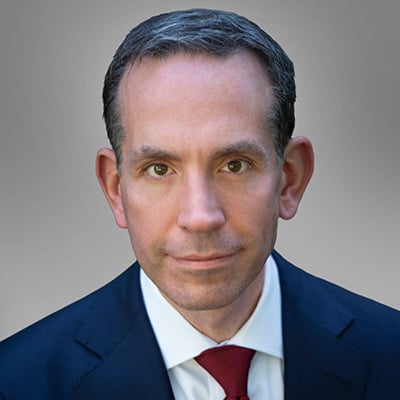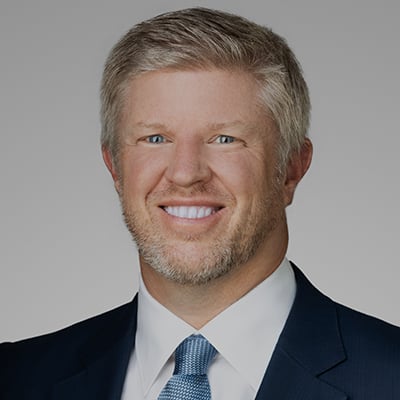Kirkland Saves Network Security Client From Potential Patent Ruin
Partners Adam Alper and Michael De Vries represented APCON Inc. against a larger competitor that was seeking to shut down the company. Rather than pursue delays, APCON went to trial quickly and ended up invalidating all of Gigamon Inc.'s asserted patents.
Gigamon v. APCON just might have been the patent infringement trial least touched by the pandemic.
Last June, U.S. District Judge Rodney Gilstrap of the Eastern District of Texas held the first in-person claim construction hearing in the case since the start of the pandemic. As the case approached trial in April, APCON Inc. didn’t ask for a delay—even though it was facing sizable damages and an injunction that could have shut down the company,
CEO Richard Rauch founded APCON 28 years ago and has devoted his life to building up the networking security and monitoring company, said the leaders of APCON’s trial team, Kirkland & Ellis partners Adam Alper and Michael De Vries. “We were anxious to get to trial to clear and validate our client’s technology, and their position as a pioneer in this field,” De Vries said.
Mission accomplished. Jurors found Friday that APCON did not infringe any of the six asserted claims of five different Gigamon patents. And they invalidated all six claims for good measure. So there will be no damages and no injunction.
De Vries elicited at trial that Gigamon had studied APCON’s technology a decade ago but decided against bringing a case. Then it did a U-turn in 2019, accusing its much smaller competitor of “rampant infringement.” De Vries said the verdict “validates APCON’s technology and their role as a pioneer in this field.”
As for the clean sweep on invalidity, “We believe that was the jury’s way of sending a message to Gigamon that what it had done was just simply not right,” Alper said.
Gigamon was represented by Desmarais, a firm that spun off from Kirkland in 2010. Though it’s been many years, a couple of the Desmarais lawyers worked under the same roof with Alper and De Vries many years ago.
De Vries said that history “brought a degree of collegiality to the process that was beneficial to both sides,” and maybe a touch of “a good-natured rivalry.”
Alper and De Vries said Gilstrap continues to employ COVID mitigation measures such as plexiglass shields in the courtroom. Each juror was given the option of wearing a clear plexiglass face shield, a clear traditional face mask, or both. “It allowed you to see the faces of the jurors throughout the trial,” Alper said.
Technically, this was the third case Alper and De Vries have tried during the pandemic era. The lawyers won a $765 million trade secrets verdict for Motorola Solutions in mid-February of 2020, and an $855 million verdict for Cognizant Technology Solutions Corp. and its subsidiary The TriZetto Group Inc. in an October in-person trial in the Southern District of New York.
They’re excited to see civil trials ramping up again all around the country, including the Northern District of California, where they’re set to try a trade secrets case in late May before U.S. District Judge Jon Tigar.
“We are happiest when we are in front of a juries,” De Vries said, “so having things resume is really great.”


